6. Smiley Face (2007)
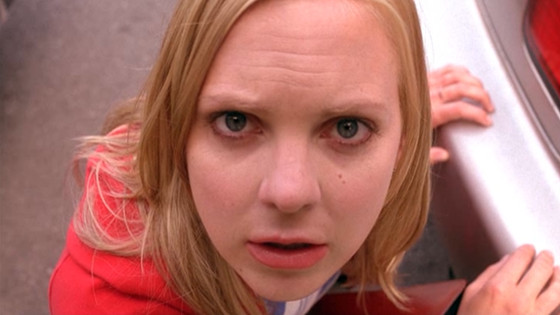
Like a sunny west coast After Hours, Smiley Face is the story of Jane F. (Anna Faris) a struggling actress trying to go about a regular day after eating a platterful of her roommate Steve’s (Danny Masterson) cupcakes, unaware of their true nature. Uh oh…
Jane’s got an audition to make… but now she’s really… really stoned. And Steve is a weirdo, potentially vengeful, and so after the audition she’ll have to make new replacement cupcakes, but first that means another ounce of weed, and without the money on hand that means getting some on credit from her dealer (Adam Brody) who needs his money that afternoon or he’ll start taking furniture. Hapless, stoned and stumbling Jane manages to do none of these things, and finds herself at the start of the film stuck somehow on an unmoving ferris wheel, with an angry mob assembling below.
Playfully digressive and surreal in its direction Smiley Face is a comedy of stoner misadventures in the line of Harold & Kumar or Dude Where’s My Car elevated by the craft of underground auteur Gregg Araki and a clownish Anna Faris.
7. Barry Lyndon (1975)
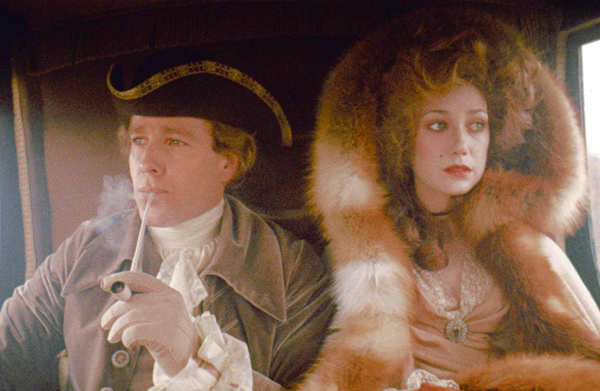
Barry Lyndon is Stanley Kubrick’s 1975 historical epic from the 19th century novel The Luck of Barry Lyndon by William Makepeace Thackeray. The film is overtly literary in its stylings, highly formal, punctuated by chapter titlecards and narrated in the original prose.
It tells the wandering story of the dandy Redmond Barry, an Irish idler and sole child of a widowed mother with little in the way of apparent ambitions or prospects. In love with his cousin Nora Brady (Gay Hamilton) and angered by her plans to marry Captain John Quin (Leonard Rossiter) of the passing Royal English army he challenges Quin to a gentleman’s duel and winning flees the authorities to Dublin, to begin the adventures of his ascension to Count Barry of Lyndon.
After being robbed for everything he has by the highwayman Captain Feeney (Arthur O’Sullivan) – whose reputation is matched only by his good manners – penniless Barry serves himself in the English army, eventually defecting to impersonate a general and pursue the romance of a Prussian countrywoman before being caught and conscripted by way of punishment into the Prussian army under a Captain Potzdorf (Hardy Krüger). Calculating, Barry quickly ingratiates himself to the Captain and rises to the service of the Ministry of Police at war’s end, dispatched under false identity to investigate the Irish libertine Chevalier de Balibari (Patrick Magee) under suspicion of being a spy, but quickly defecting to his countryman’s service, helping him escape the Prussian authorities and becoming his second in a card cheating racket.
From this place of status as Balibari’s accomplice Barry finally marries the Countess of Lyndon (Marisa Berenson) after provoking her aged husband Sir Charles Reginald Lyndon (Frank Middlemass) into a fatal heart attack, wherefrom his luck turns on its head and Barry’s good fortunes begin to reverse toward tragedy.
8. Sorry to Bother You (2018)
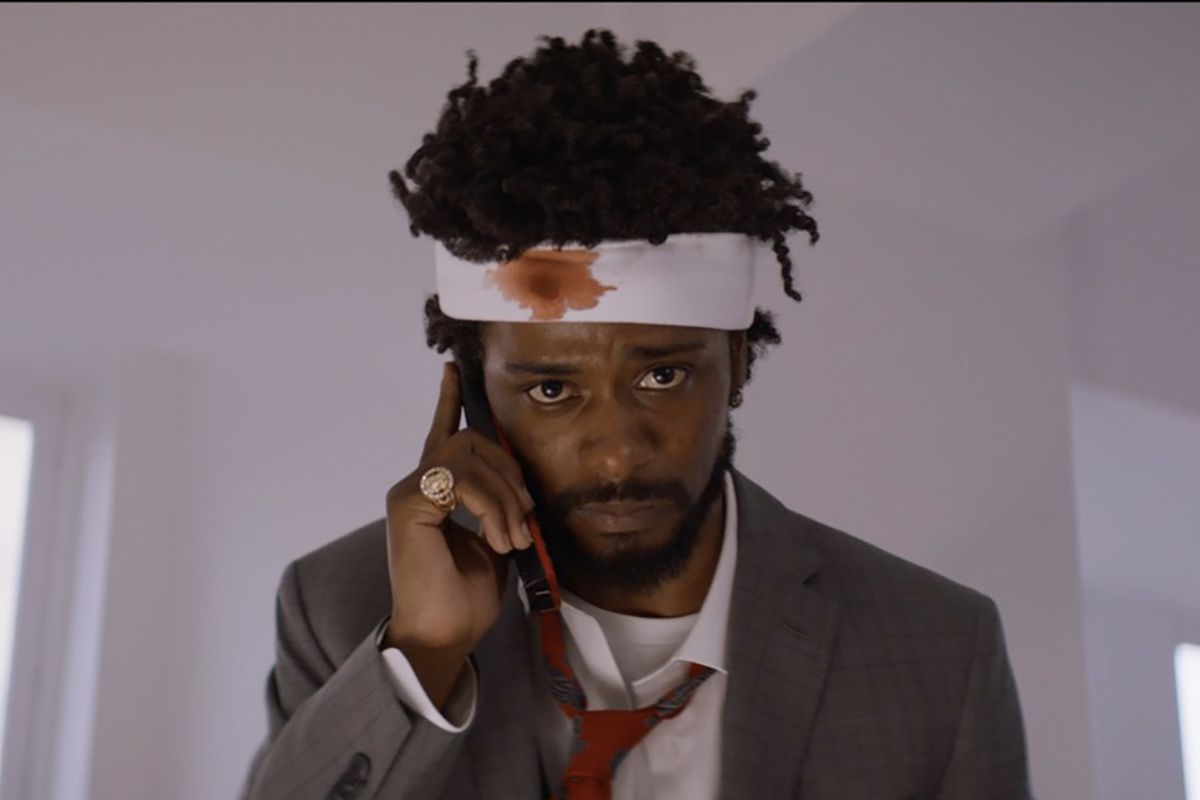
Sorry to Bother You is the 2018 directorial debut of musician Boots Riley, and follows Cassius “Cash” Green’s (Lakeith Stanfield) swift climbing the corporate foodchain of a grotesque liberal-dystopian near future America.
We meet Cash living in his uncle’s garage wanting to be somebody and faking a resume to get himself a sales job at the RegalView call center where the manager (Robert Longstreet) sees through his deception but sees that kind of bending the rules an asset in selling. Determined to pay his uncle back what he owes him, replace his failing car, and get a place his girlfriend Detroit (Tessa Thompson) can move into Cash learns to do whatever it takes to make a sale and above all, on the tip of old timer Langston (Danny Glover) always use his “white voice” – a surrender of self dubbed in by comedian David Cross.
Soon Cash finds himself working upstairs for an eyepatched man (Omari Hardwick) trafficking in arms and human slave labor, and brushing elbows with Steve Lift (Armie Hammer) a kind of Elon Musk figure who heads the “WorryFree” all in one workplace/living space lifetime contract system, and soon discovers the secret of Lift’s next plan for the future of America’s workforce.
With a flair for visual storytelling and timing akin to Edgar Wright Sorry To Bother You explores issues of race and class in America with a tone darkly surreal and comic.
9. Seven Beauties (1975)
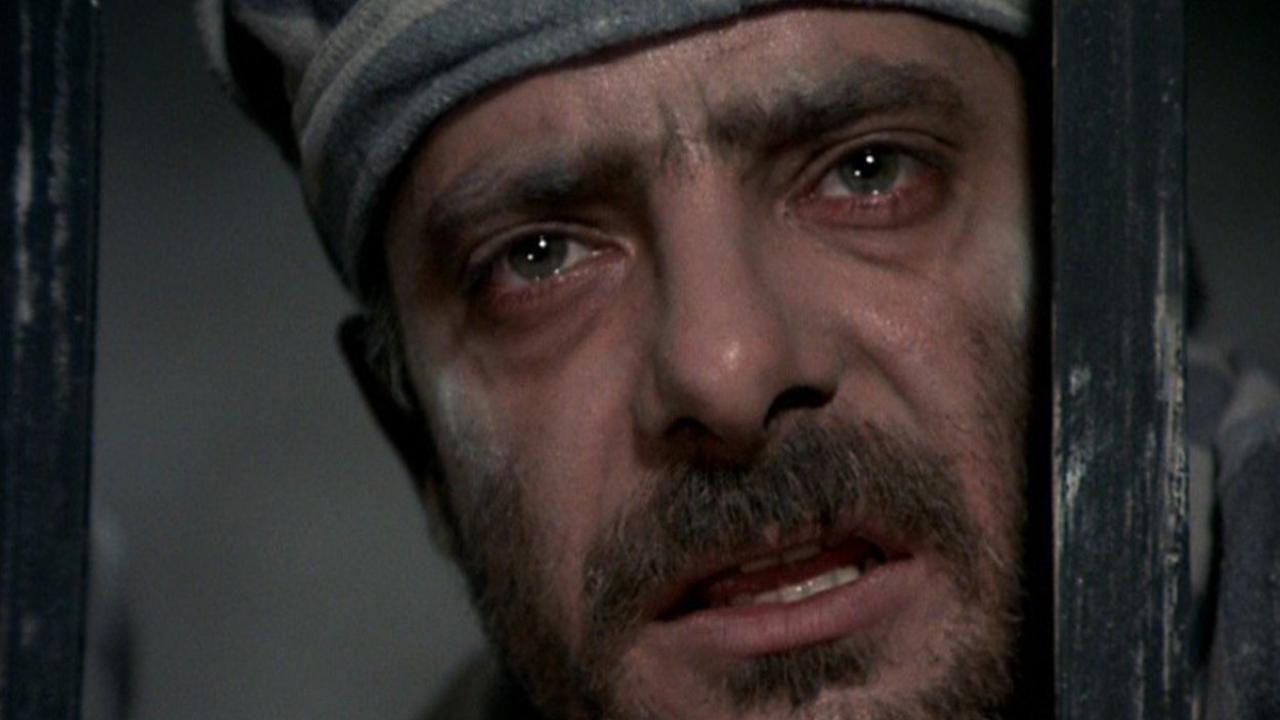
Lina Wertmüller’s 1975 Seven Beauties is the story of Pasqualino Frafuso, (Giancarlo Giannini) a hustler in wartime fascist Italy who represents the selfish indifference of Italian complicity in the holocaust and other horrors of the fascist regime, and opens with an upbeat jazzy montage of wartime violence a bitter ironic monologue in praise of the ignorant and neutral, the selfish and the spineless and afraid, the great enablers, those who always say ‘yes sir’ and those who blindly follow, oh yeah, the ones who leave it up to someone else, the ones who always sleep soundly, oh yeah, oh yeah.
The film follows Pasqualino’s journey from Naples where he murders a pimp (Enzo Vitale) for trying to wheel in one of his seven sisters Concettina (Elena Fiore), – more for the dishonour this brings upon his name than out of consideration for his sister – to prison once he is caught, to the psych ward where he is transferred after faking a psychotic break and claiming to to be Moussolini, to the fascist military as a way out of the psych ward, to the road of desertion, and finally to a concentration camp, where he trades the grotesque warden (Shirley Stoler) sexual favors for some safety as a camp collaborator, in charge of choosing prisoners from among his own for death.
10. Being There (1979)
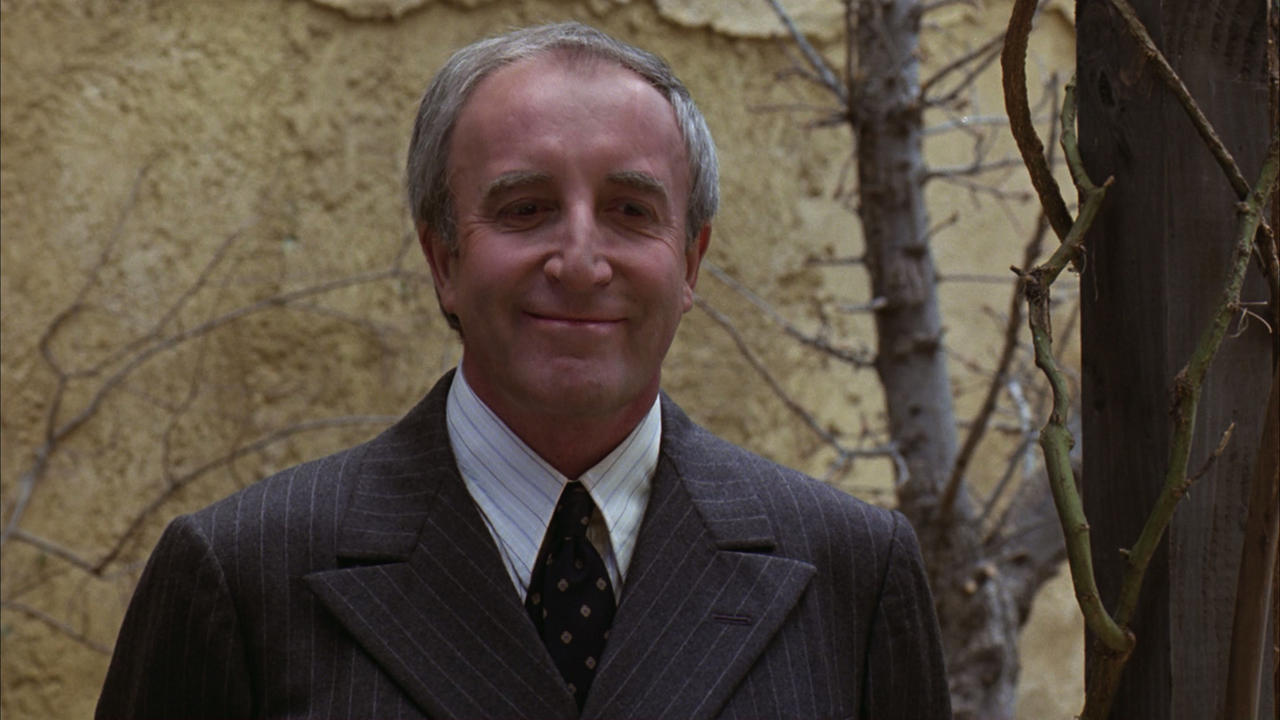
Being There from the novel by Jerzy Kosiński is a 1979 film by Hal Ashby starring Peter Sellers as Chance, an aged gardener who has spent his entire life in the seclusion of his unknown employer’s Washington DC estate, never having learned to read or write, taught everything he knows from the TV and radio.
The film begins as the old man dies and Chance, not knowing to make any claim on the estate is turned out in the street to find his way in the world for the first time. What one might expect to be disastrous shows itself as good fortune for Chance who wandering around sharing his knowledge of the garden is quickly misapprehended as a kind of sage speaking truth in folksy metaphors, and taken in by wealthy industrialist Ben Rand (Melvyn Douglas) who believes Chance an economist, Chance becomes a figure on the political stage, a media phenomenon, and a quick friend of a Soviet Ambassador (Richard Basehart) apparently improving relations between the US and USSR.
Overtly a kind of fish out of water comedy playing on the irony between the man Chance is and the way the world perceives him, there is something stranger, subtler going on beneath. While Being There looks at the world of American power with a critical eye – secret economic forces controlling the actions of government, and a public and political class wowed by the idle talk of a gardener in a kind of emperor-has-no-clothes situation, there is also the suggestion of something saintlike in Chance’s simple and innocent ways, and perhaps, some real universal truth in his talk of the garden as microcosm of life, putting the whole film in a funny balance between biting satire and humanist ode to Chance’s simple ways.